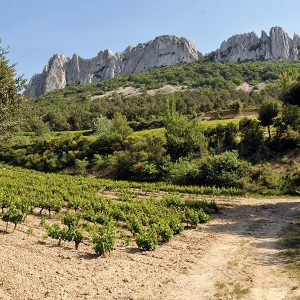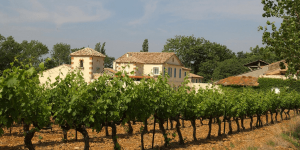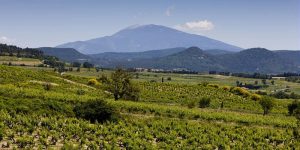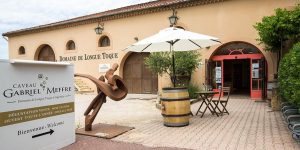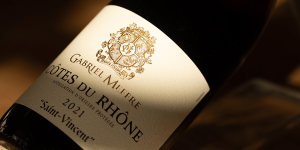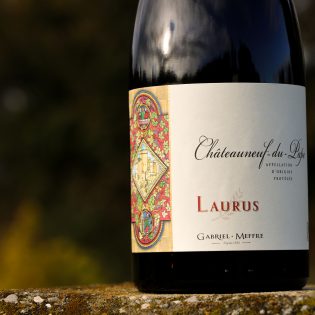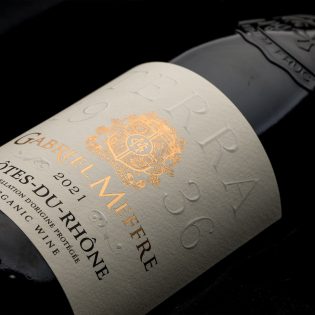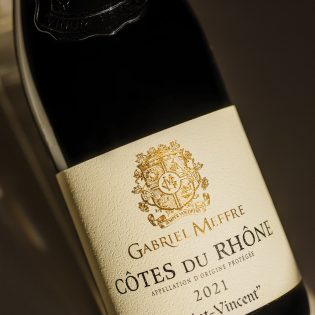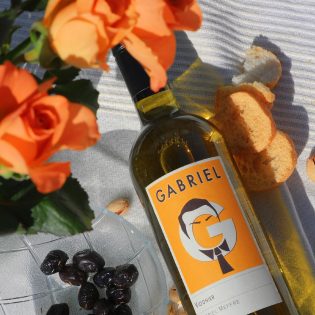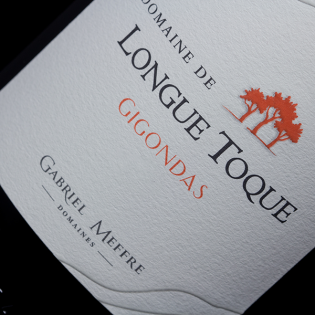
Château Grand Escalion
The vineyard’s 44 hectares are spread over a single area surrounding the estate and stretch across gentle slopes. The Château owes its name to the word “Escalion”, meaning “ascent” in Provençal.
The Estate produces red, rosé and white Costières de Nîmes.
The grape varieties and our terroir enable the vineyard manager, Nicolas Speranza, to capitalise on the great potential of the appellation by creating single-vineyard cuvées.
The wines of the Domain
AOP Costières de Nîmes
- Costières de Nîmes Safranee 2021 Red
- Costières de Nîmes Safranee 2020 Red
- Costières de Nîmes Safranee 2019 Red
- Costières de Nîmes Safranee 2018 Red
- Costières de Nîmes Safranee 2017 Red
- Costières de Nîmes Safranee 2016 Red
- Costières de Nîmes Safranee 2015 Red
- Costières de Nîmes Safranee 2014 Red
- Costières de Nîmes Safranée 2022 Red
- Costières de Nîmes Safranée 2019 Red
- Costières de Nîmes Romane 2023 White
- Costières de Nîmes Romane 2022 White
- Costières de Nîmes Romane 2021 White
- Costières de Nîmes Romane 2020 White
- Costières de Nîmes Romane 2019 White
- Costières de Nîmes 2019 Rosé
- Costières de Nîmes 2018 Rosé
- Costières de Nîmes 2017 Rosé
- Costières de Nîmes 2015 Rosé
- Costières de Nîmes Amoureuse 2023 Rosé
- Costières de Nîmes Amoureuse 2022 Rosé
- Costières de Nîmes Amoureuse 2021 Rosé
- Costières de Nîmes Amoureuse 2020 Rosé
- Costières de Nîmes Amoureuse 2019 Rosé
- Costières de Nîmes Amoureuse 2018 Rosé
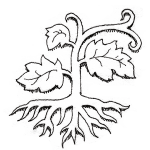
Terroir et travail du vignoble
Les vignes prospèrent sur des terrasses alluviales anciennes du Rhône recouvertes de galets roulés sur une couche épaisse d’argiles rouges qui repose, selon les endroits, sur un substratum profond de marnes bleues du Pliocène.
Cette couche d’argile permet de retenir l’eau de pluie ce qui est précieux en période estivale.
L’ensemble bénéficie d’un climat Méditerranéen largement influencé par la proximité des étangs de Camargue.
Les vignes ont en moyenne moins de 20 ans. Elles sont entretenues pour maîtriser les couverts végétaux toute l’année ce qui est primordial pour éviter le stress hydrique.
Depuis 2015, la nutrition de la vigne provient exclusivement de produits d’origine organiques.
« C’est un travail de vigneron sérieux, sans élucubration qui demande une grande rigueur pour assurer un état sanitaire qualitatif tout le long de l’année malgré les aléas du millésime ». N. Speranza
Les cépages rouges : Syrah, Grenache Noir, Mourvèdre, Carignan, Cinsault et Marselan.
Les cépages blancs : Roussanne, Grenache Blanc, Rolle et Clairette.



HVE 3
Après avoir été conduit en agriculture raisonnée sous le Label Terra Vitis® depuis 2001, le Domaine est certifié HVE3 – Haute Valeur Environnementale depuis le millésime 2018, marquant son engagement fort à respecter le terroir, la vigne et les hommes.
Le Domaine va encore plus loin dans la démarche en utilisant exclusivement des engrais organiques.
Afin d’optimiser les traitements phytosanitaires des vignes, nous avons investi dans une station météo connectée en 2016.
@Sencrop
C’est un outil indispensable qui nous permet de :
- Quantifier précisément l’humidité apportée par les étangs en fin de nuit (3h et 5h du matin) sous forme de brouillards assez fugaces. Cela nous permet notamment d’évaluer le risque de mildiou et de réagir en conséquence.
- Détecter la présence du vent et d’en mesurer la force, paramètre important pour décider du meilleur moment pour traiter.
- Anticiper les précipitations et ainsi adapter notre irrigation. En effet, un système de goutte à goutte est installé dans le vignoble. Il est alimenté par le canal d’irrigation du Bas-Rhône Languedoc ou canal Philippe-Lamour qui amène l’eau du Rhône vers le sud du département du Gard et l’est du département de l’Hérault depuis les années 1960.
Grâce à la station météo, nous traitons plus efficacement et moins souvent. En moyenne 2 à 6 pulvérisations par an : économie de produits, de temps, de main d’œuvre et limite notre impact sur l’environnement proche, ce qui rejoint également notre démarche HVE3.
Par ailleurs, depuis quelques années un berger fait paître ses moutons dans les vignes une fois par an, l’hiver. Ce qui économise un labour.

Des Cuvées Parcellaires
Bien que notre vignoble soit d’un seul tenant, la variété des cépages alliée à une sélection parcellaire réalisée par le responsable du vignoble, Nicolas Speranza, permettent de produire des cuvées spécifiques, issues de vinifications ou d’élevages particuliers :
- Amoureuse
- Safranée
- Romane
Amoureuse – Une vinification soignée
Les moments « clé » du rosé sont le pressurage et le débourbage.
Pour réaliser un pressurage qualitatif, plusieurs choix sont nécessaires :
- Les raisins doivent être vendangés aux heures les plus fraîches : 3h du matin. Presser une vendange chaude extrait des composés végétaux qui vont troubler le moût (que l’on souhaitera clarifier ensuite) et extrait des anthocyanes que l’on ne désire pas (puisque l’on souhaite des rosés pâles).
- -Les baies qui sont pressées doivent être les plus intègres possible. Pour cela, nous avons choisi un pressoir de 50hl à membranes alimenté par un tapis pour un pressurage direct en douceur.
- Le débourbage est une opération primordiale.
La clarification du jus de presse (action de supprimer les particules en suspension avec de l’argile) doit être faite minutieusement pour obtenir les jus les plus limpides possible et pour capter les arômes les plus nobles.
Plus le jus est limpide, plus la fermentation produira des arômes nets. À l’occasion du débourbage, nous corrigeons les teintes orangées afin de ne garder que les nuances violines.
« En utilisant les colles avant la fermentation, nous préservons tout le potentiel aromatique et gustatif du vin qui va se développer au cours de cette fermentation. Travailler les jus et pas le vin. » Nicolas Speranza
Safranée – Un Costières à haut potentiel
En 2014, Nicolas Speranza est arrivé au Château Grand Escalion pour réaliser un travail de sélection parcellaire dont l’objectif était de créer un Costières de Nîmes rouge riche, souple et velouté pour mettre en lumière le potentiel de l’appellation.
Dans cet objectif, il a aussi travaillé sur l’élevage en barrique de trois vins pour la Syrah. L’intérêt de passer le vin dans des barriques déjà patinées est de ne pas marquer la cuvée avec le bois mais de la faire évoluer. Au bout de 6 à 9 mois d’élevage, en avril-mai, le vin est déjà prêt avec des tanins affinés et structurés.
Romane – Date des vendanges primordiale
Nicolas a planté les cépages blancs en 2014 pour donner naissance à la première cuvée Romane en 2019.
Le choix des cépages est essentiel dans la construction de la cuvée.
Les 3 cépages se complètent en apportant acidité, richesse et arômes :
- Roussanne, cépage précoce. Il est vendangé bien mûr avec un degré alcoolique élevé qui apporte richesse et gras (grains bien mûrs et dorés).
- Grenache blanc, cépage tardif. Il est vendangé plutôt vert. Le grain est très brillant avec de l’acidité et un degré alcoolique bas.
- Rolle, cépage qui exprime tout son potentiel aromatique à maturité moyenne.
C’est un choix technique réfléchi que de les vendanger, presser et vinifier ensemble.
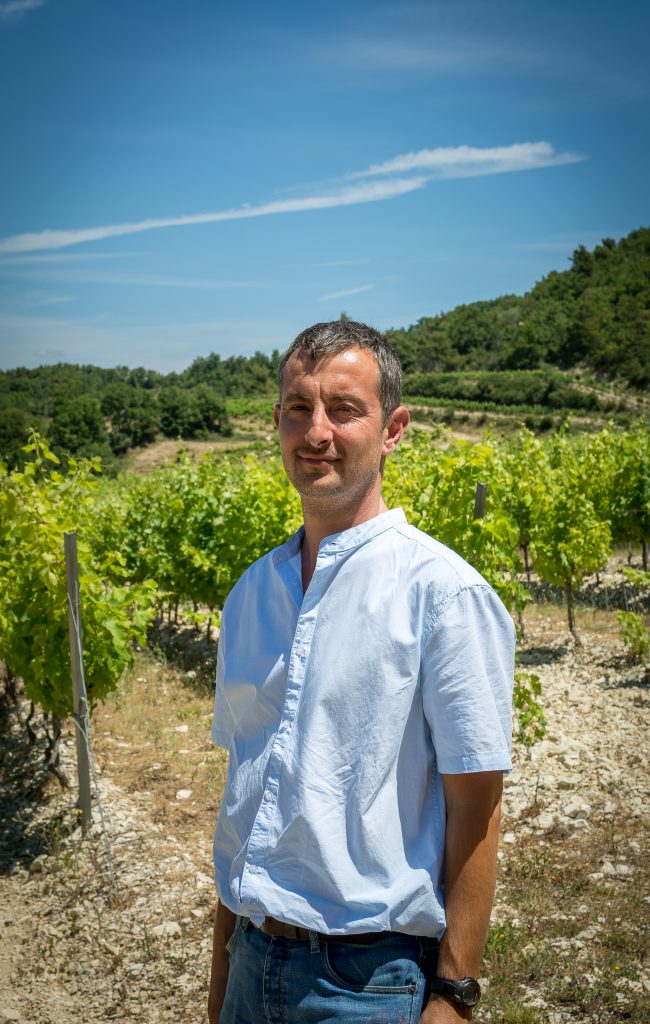
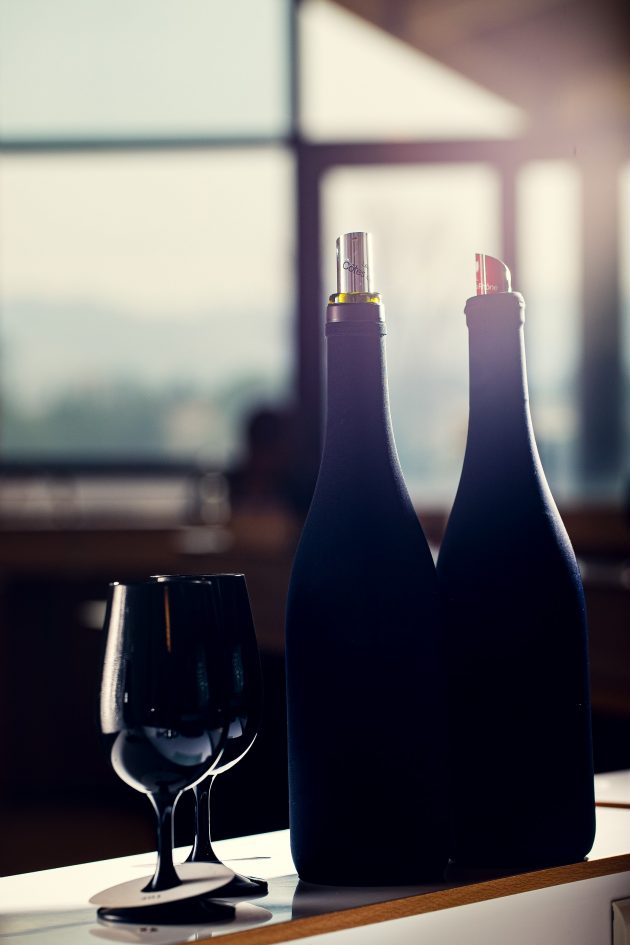

Presse et récompenses
Le travail réalisé à la vigne et dans la cave est relayé par la presse spécialisée en France et à l’étranger. Depuis le millésime 2011, les cuvées du Château ont été récompensées à différents concours comme le Concours Général Agricole de Paris, Concours des Vins de Mâcon, le Mondial du Rosé et les concours britanniques.
« Château Grand Escalion is a consistenly reliable rosé producer. » Joe Czerwinski – May 2023
